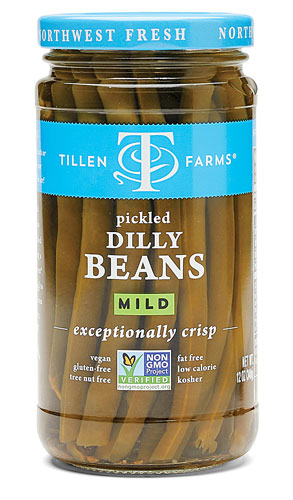If you find yourself gravitating towards a plant-based diet, you’re in sterling company, as more people now than ever are opting for a lifestyle/menu that offers so many benefits—from improved wellness, to safe, sustainable weight loss, to disease prevention and more.
Even if you don’t abstain from animal products entirely, research suggests that eating mostly plant-based offers distinct advantages over a meat-centered diet. This is partly due to a lower intake of saturated fat, cholesterol and animal protein, as well as higher intakes of complex carbohydrates, fiber, important vitamins, minerals, and phytonutrients—natural plant chemicals with unique antioxidant activity.
Given all this—not to mention the many other benefits associated with whole foods/plant-based dining—you may be wondering how to actualize this kind of plant-based menu in your daily life. These tips can help:
Plant-Based Nutrition Tips
1. Emphasize whole, intact foods
Unlike processed food products, which are typically altered, refined, fractionated, and heavily embalmed with salt, sugar, and chemicals to extend shelf life, whole foods such as fruits, veggies, grains, beans, legumes, nuts, seeds, herbs and spices are clean, simple, and fresh, enjoyed in their natural, intact state—raw, sprouted, or lightly cooked. Whole food fats are also a vitally important part of a healthy, plant-fueled menu. Instead of refined, heat-processed, damaged oils, seek out raw, intact food fats such as avocados, olives, nuts and seeds.
2. Diversify your menu
By consuming a wide range of fresh, whole foods, you’ll obtain a far greater array of essential nutrients than by simply rotating a few meals. In fact, the greater the food variety, the more vitamins, minerals, trace elements, enzymes and amino acids you’ll absorb each day. To that end, entrée salads are ideal, enabling you to enjoy countless variations using the greens, veggies, fruit, nuts, seeds, beans, grains, legumes, herbs and spices you have on hand or find in season at your farmer’s market. Check out these great tips for building a filling, nourishing, and ever-evolving entrée salad. Make it a daily anchor staple that includes some satiating protein and a healthy salad dressing such as this vegan hempseed version.
3. Eat a rainbow
To be sure healthy fruits and veggies get star billing on your daily menu, aim visually for a plate containing two-thirds brightly-colored produce at each meal, which could be both cooked and raw. That might be an entrée salad featuring jewel-toned veggies, blended green soups, baked yams and beets, chia seed-berry “pudding,” or a colorful stir-fry. You might even consider a large seasonal fruit platter as a light, invigorating, ultra-clean meal, especially in the warmer months. Simply think “rainbow” whenever you dine, and you’re likely to find that these beautiful, vibrantly-hued foods that make you look and feel so great are positively addicting!
4. Prep with protein
While it’s now common knowledge that consuming a wide variety of plant foods daily ensures adequate levels of essential amino acids, you may also want to boost protein with each meal. So, if two-thirds of your plate is produce, make the remaining one-third rich in plant-based protein with any bean, legume and grain combo, deliciously prepared tofu, chickpea salad, a tempeh “bacon” BLT, chickpea-almond hummus dip, bean & barley chili, or a veggie patty. Emphasize plant sources containing all nine essential amino acids such as quinoa, chia and hemp seeds, and tofu/soy. You can also amplify your intake of foods rich in the four amino acids which are limited in many plant foods—lysine, tryptophan, methionine, and phenylalanine. For example:
- Lysine: Black, garbanzo and kidney beans, quinoa, nutritional yeast, lentils, wheat germ, pistachios, spirulina and soy products.
- Methionine: Avocado, wheat germ, sunflower seeds, Brazil nuts and oats.
- Phenylalanine: Lima beans, pecans, sesame and pumpkin seeds, peanuts, whole grains, soybeans, chickpeas and lentils.
- Tryptophan: Almonds, spinach, asparagus, peanuts, wheat germ, sesame and pumpkin seeds.
5. Be supplement savvy
As healthy as a plant-centered menu can be, no single diet is guaranteed to provide optimal levels of every single vitamin, mineral and trace element on a daily basis. Bolstering your intake of important nutrients with dietary supplements is one of the easiest, most effective and ultimately, most affordable ways to empower overall wellness and nurture healthy longevity. In addition to a high-quality daily multi-vitamin/mineral formula in capsule or chewable form, consider the full spectrum of B-complex vitamins—which, like vitamin C are water-soluble and can’t be stored—vitamin D3, and vegan-sourced omega-3 fatty acids, to name a few.
This is a lifestyle journey, not a destination, so by all means enjoy the ride. Once you get your jam with these effective tips, you’ll be well on your way to optimizing your plant-based wellness!




